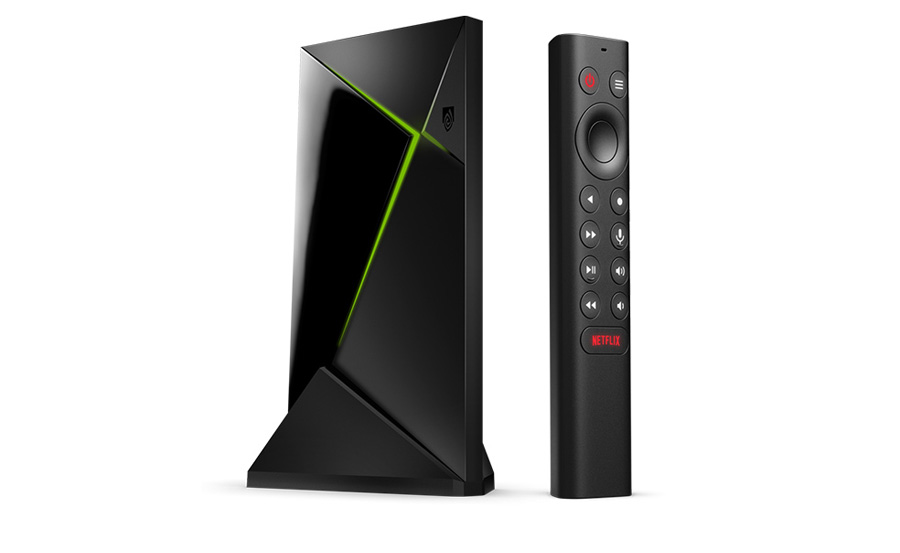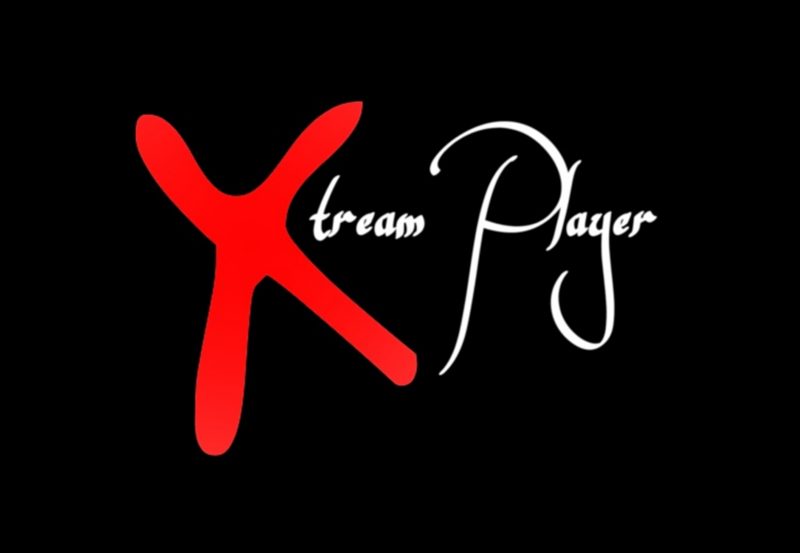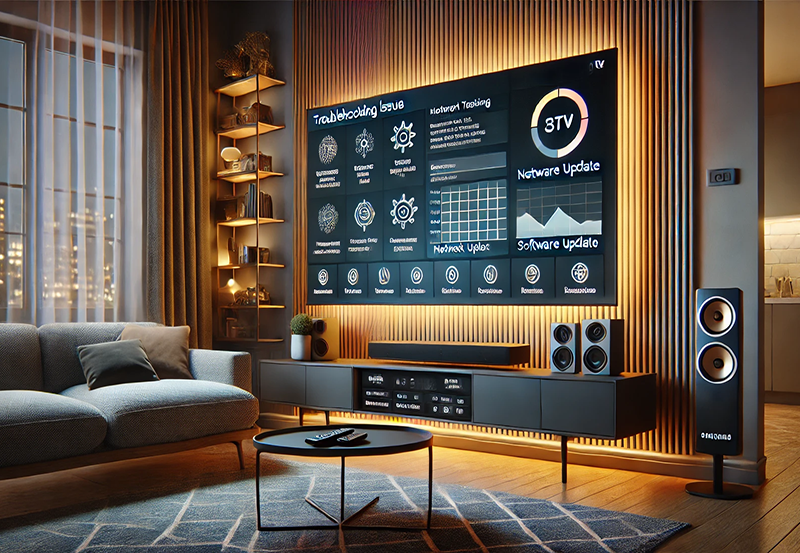When it comes to streaming media, gaming, and smart home integration, two popular options for your TV setup are NVIDIA Shield TV and Android TV Boxes. Both offer an impressive range of features, but the question remains: which one delivers the best performance? In this article, we will compare these two devices in detail to help you make the most informed decision about which one fits your needs best.
Buy 1 Year IPTV Subscription and Enjoy Unlimited Content
What is NVIDIA Shield TV?
NVIDIA Shield TV is a high-performance Android TV-based media player designed for streaming, gaming, and smart home control. Equipped with NVIDIA’s powerful *Tegra X1+ processor, it provides support for 4K HDR streaming, AI-enhanced upscaling, and seamless cloud gaming via *GeForce NOW.
Key Features of NVIDIA Shield TV:
- 4K HDR Streaming: Supports 4K streaming with HDR for crystal-clear visuals.
- GeForce NOW Cloud Gaming: Stream PC-quality games without the need for a powerful gaming PC.
- AI Upscaling: Enhances non-4K content to near 4K quality using AI technology.
- Android Ecosystem: Fully integrates with the Android TV ecosystem, supporting Google Assistant and a wide range of apps.order IPTV
- Expandable Storage: Allows for external storage options to store more media and games.
The NVIDIA Shield TV is known for its exceptional gaming capabilities, offering both streaming and playing native Android games. Whether you’re streaming movies, playing 4K content, or playing GeForce NOW-compatible games, it remains one of the top choices for tech enthusiasts.
What is Android TV Box?
An Android TV Box is a device that runs on the Android operating system, designed to bring smart TV features to non-smart televisions. It’s a versatile platform that can be used for streaming, browsing, gaming, and much more. There are various models of Android TV Boxes, from budget-friendly devices to more premium options.
Key Features of Android TV Box:
- Wide Range of Models: There’s an Android TV Box for every budget, from basic models to high-end ones.
- Google Play Store: Access to the Google Play Store, allowing you to download apps, games, and streaming services.
- Customization: Android TV Boxes offer greater customization options compared to other streaming devices.
- *Affordable Options: Generally, Android TV Boxes are more affordable than premium devices like the *NVIDIA Shield TV.
- Gaming Support: Supports Android games, though performance may vary based on the hardware.
While Android TV Boxes provide solid streaming performance, the quality largely depends on the specifications and the particular model you choose.
Performance Comparison: NVIDIA Shield TV vs Android TV Box
1. Streaming Quality
When it comes to streaming, NVIDIA Shield TV takes the lead with its support for 4K HDR and *AI-enhanced upscaling. It can stream media content in *4K and automatically enhance lower resolution content to near 4K quality, making it ideal for a high-quality viewing experience.
*Android TV Boxes, on the other hand, vary greatly in terms of streaming capabilities. Budget models may support HD resolution, but many high-end Android TV Boxes can support *4K streaming as well. However, they may lack the AI upscaling feature and specialized hardware that the NVIDIA Shield TV offers.
2. Gaming Performance
One of the standout features of NVIDIA Shield TV is its integration with *GeForce NOW, NVIDIA’s cloud gaming service. This feature enables you to play high-performance PC games directly on your TV without the need for an expensive gaming rig. It also supports native Android games and local game streaming from your *PC.
Android TV Boxes can run Android games, but they don’t offer the same level of performance or cloud gaming integration as the NVIDIA Shield TV. You can play mobile games, but expect a less fluid and less immersive experience for more graphics-intensive games.
3. Processor and Hardware
The NVIDIA Shield TV boasts the *Tegra X1+ processor, which provides more power than most Android TV Boxes. The *X1+ chip is optimized for 4K HDR, AI upscaling, and gaming, making NVIDIA Shield TV one of the fastest and most responsive streaming boxes available.
In contrast, Android TV Boxes typically use a variety of processors, with lower-end boxes utilizing less powerful hardware. Some premium Android TV Boxes feature Amlogic or Rockchip processors, which offer good performance for everyday tasks but may fall short when it comes to gaming and 4K streaming.
4. User Interface and Software
NVIDIA Shield TV runs on *Android TV, which provides a clean, user-friendly interface with easy access to apps, games, and settings. It also includes integration with *Google Assistant, so you can control your TV with voice commands.
Android TV Boxes also run on *Android TV, but they may offer varying experiences depending on the box’s build quality and software. Some boxes come with customized interfaces, which may or may not provide the same smooth experience as *NVIDIA Shield TV.
How to Set Up Multiple IPTV Services on Formuler Z11
5. Customization and Flexibility
If you’re a tech enthusiast who loves customization, Android TV Boxes are the clear winner. These devices often allow you to tweak the settings, install third-party apps, or even change the operating system entirely, depending on the hardware.
NVIDIA Shield TV offers some level of customization, but it’s more focused on delivering an optimized, hassle-free experience. It provides robust app support and easy access to services like *Netflix, **YouTube, and *GeForce NOW without the need for much tinkering.
6. Price
The NVIDIA Shield TV is a premium device, with a price tag to match its high-end performance. While it offers a great return on investment for those looking for a powerful, future-proof device, it is considerably more expensive than most Android TV Boxes.
Android TV Boxes come in a wide range of price points, from budget models to high-end devices. While you can find a cheap Android TV Box that supports *4K streaming, the overall quality and performance may not compare to the *NVIDIA Shield TV.
Which One is Right for You?
Choose NVIDIA Shield TV if:
- You want a premium device with excellent 4K HDR streaming and gaming performance.
- You’re a cloud gamer and want access to GeForce NOW for PC-quality game streaming.
- You value AI upscaling and smooth, high-quality video.
- You’re willing to invest in a future-proof device that provides long-term performance.
Choose Android TV Box if:
- You have a limited budget and need a basic streaming device.
- You want a customizable platform with more control over apps and settings.
- You only need basic streaming services like Netflix, YouTube, or Amazon Prime Video.
- You’re willing to make some trade-offs on performance for a lower price.
FAQs

1. Is NVIDIA Shield TV worth the investment?
Yes, if you’re looking for a high-performance device that can handle *4K streaming, **AI upscaling, and **cloud gaming, *NVIDIA Shield TV is an excellent choice.
2. Can I use an Android TV Box for gaming?
Yes, but the performance won’t be as good as the *NVIDIA Shield TV. For more demanding games, you may want to opt for a more powerful box or a service like *GeForce NOW.
3. What makes NVIDIA Shield TV better than Android TV Boxes?
NVIDIA Shield IPTV offers better *gaming performance, **cloud gaming integration, and *AI upscaling for video. It’s designed for those looking for premium performance and features.
4. Which Android TV Box should I buy for 4K streaming?
Look for high-end Android TV Boxes that feature powerful processors like Amlogic S922X or Rockchip RK3399, which offer 4K support and strong performance.
5. Can I use NVIDIA Shield TV for other smart home tasks?
Yes, NVIDIA Shield TV integrates well with smart home platforms, including Google Assistant, allowing you to control your smart devices and perform other tasks with voice commands.
Stream IPTV on TV and Smartphone Simultaneously




